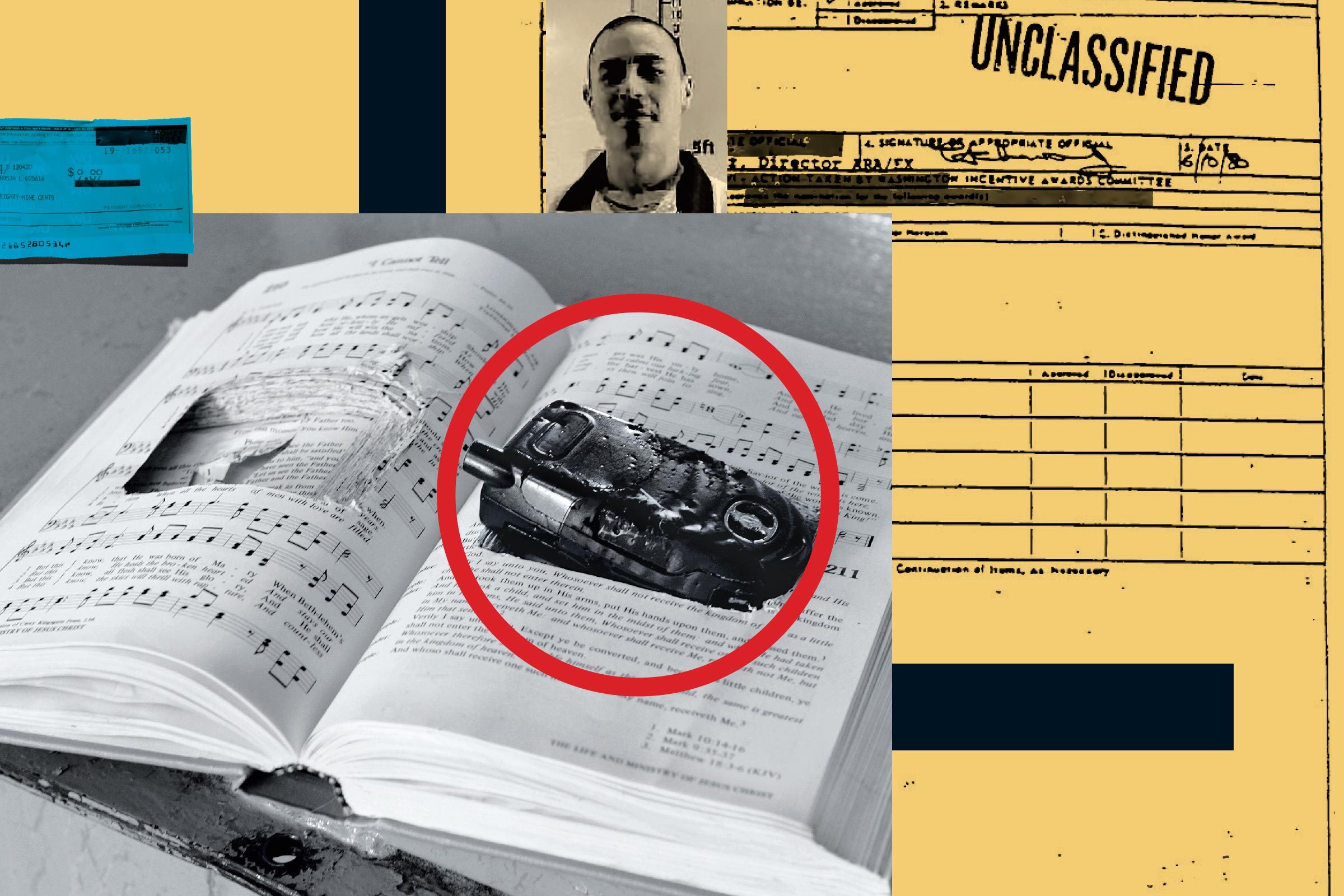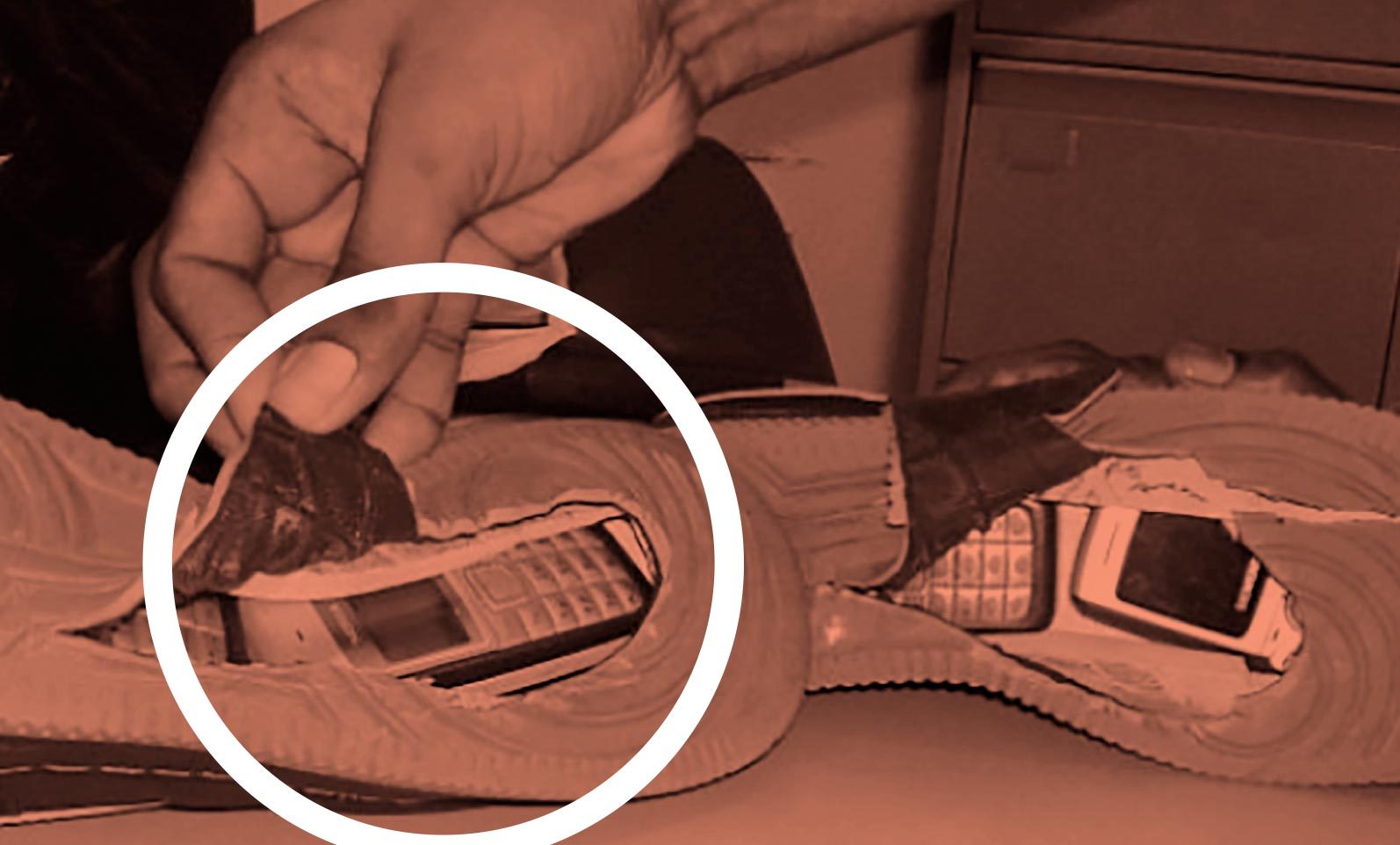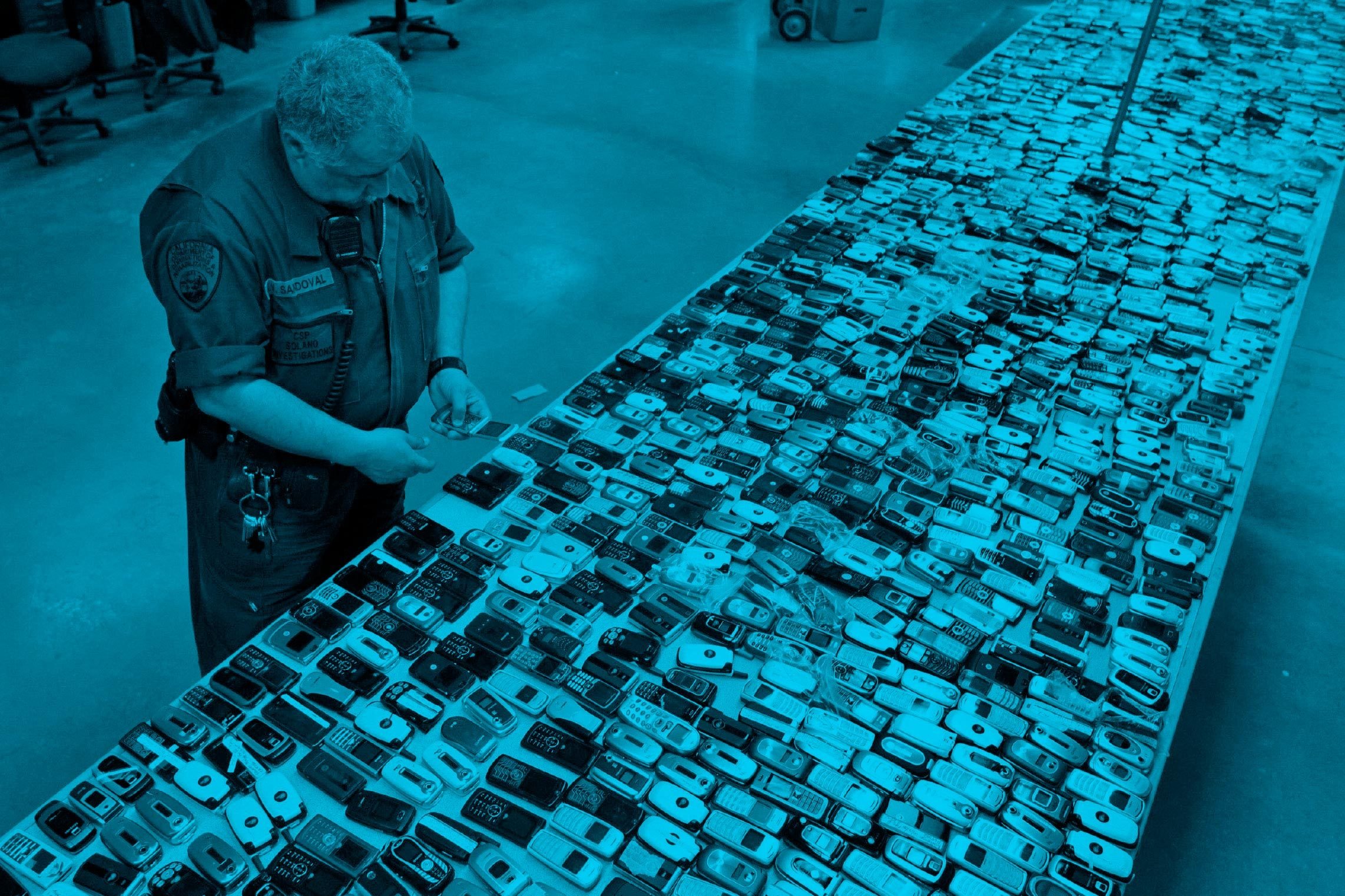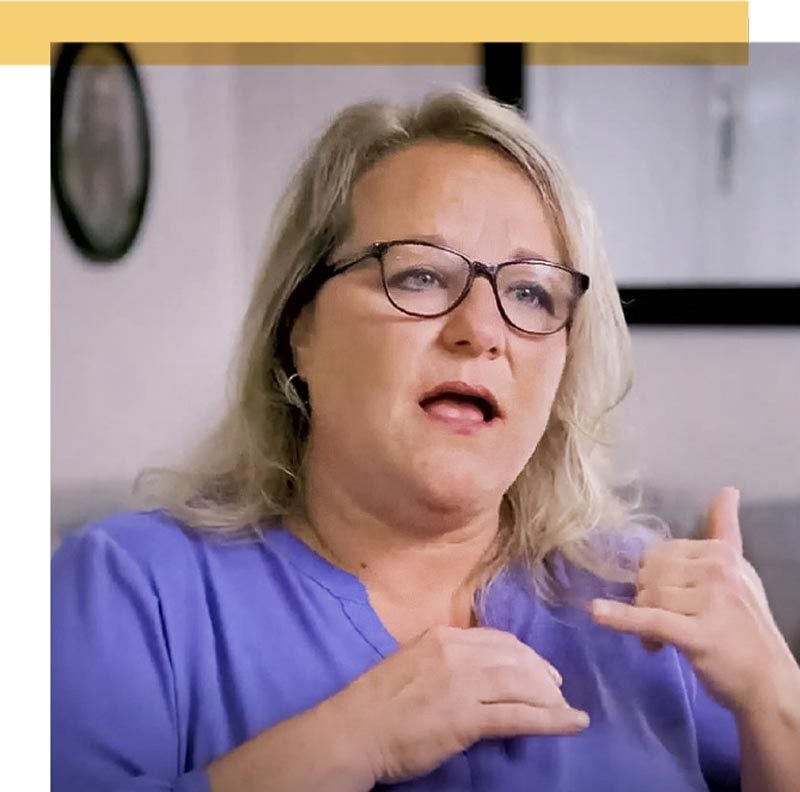These Prisoners Scammed Millions from the Comfort of Their Jail Cells
Updated: Feb. 23, 2021
A diabolical scam snares everyday Americans. The real shock is that it is pulled off by prisoners.

Like so many of us, Kaj Miller, 50, almost never answers her home phone anymore. But when it rang one Saturday morning in August 2015, the caller ID read “San Diego County Sheriff’s Office.” Since she’d had a number of family members in trouble with the law over the years, she decided to pick up. Turns out that she was the one in trouble. The officer on the phone told her she had missed jury duty and there were warrants out for her immediate arrest.
Miller didn’t believe him. “I had just served on a jury three months before,” she says, “so I pushed back and told him I thought it was a scam. I asked to talk to his supervisor.”
The man on the phone calmly said “No problem,” gave Miller the number for the sheriff’s office, and told her to ask for the Court Services Division. When she called the number, a recording answered with “San Diego County Sheriff’s Office,” then ran through a series of prompts. She pressed 3 for the Court Services Division.
Captain Dwight Garrison picked up the call and, after a pause to check her status, told her the same story: She had missed several jury duty notices and there were two warrants in circulation for her arrest. “Unfortunately, because it’s Saturday, if you don’t work with me to pay the $989 fine, officers will come out to your house and arrest you.”

Miller told Garrison that there must be some mistake; he responded that she was probably right. But only the court could say so, and it was closed. Meanwhile, the warrants were still live. The one way to avoid arrest was to pay the fine and then straighten things out on Monday, when the court reopened. Otherwise, Miller would likely spend the rest of the weekend in jail.
Miller was still skeptical, but the prospect of being arrested and spending a night or two in jail really did frighten her. “At this point, I’m nervous. I’m all alone; it’s midafternoon on a Saturday. I was terrified.”
So she decided to follow Garrison’s instructions. She drove to Walmart, as she was told to do, took out a $989 MoneyGram wire, and gave Garrison the wiring information and immediate access to the money. Still on the phone, Garrison told her that only part of the money went through, so she needed to get another money order to avoid arrest. By this time, Miller had had it. After a testy back-and-forth with Garrison, she hung up and nervously waited out the weekend.
On Monday she called the San Diego County Sheriff’s Department, and an officer confirmed her fears.

“Captain Dwight Garrison” was actually sitting 2,200 miles away in a jail cell at Autry State Prison, a medium-security facility in Pelham, Georgia. His real name: Joseph Tate. He was two years into serving a 40-year sentence for cocaine distribution. His cellmate, Jesse Lopez, was the first “officer” Miller had spoken with; he was serving a ten-year sentence at Autry for two robbery convictions.
Lopez and Tate made a good team; over a two-year span, they had brought in more than $300,000 from the bunks of their cell by pretending to be cops and calling people around the country, pulling the jury duty scam. It’s a relatively simple, common swindle that requires just a phone, a few apps, and a healthy dose of chutzpah.
Lopez and Tate had all these tools. And they got very good at using them, playing off each other’s strengths. Lopez was the researcher, staying up for days at a time, high on crystal meth that was smuggled into the prison, finding potential victims to target and all the information about local courts and sheriffs to use in the pitch. Tate, a gifted talker, was the closer—he had a knack for persuading people to send him money. He even got a retired judge to pay more than $900 so his daughter, who supposedly missed jury duty, wouldn’t be sent to jail.
Key to the success of the conspiracy were the cell phones smuggled into the prison. By law, inmates aren’t allowed to have them. But overcoming that is often just a question of jailhouse economics. Reginald Perkins was one of the guys recruited to join the scam, and in testimony to FBI agents, he explained how easy it was to smuggle cell phones into Autry.

The most common strategy was simply to bribe the guards. A prison guard in Georgia makes $15 to $20 an hour. As Perkins told the FBI, “I can pay them $1,000 in one day for a cell phone. Who’s not going to take the chance?”
More creative ways to smuggle in cell phones included throwing them over a prison wall or even flying them over with hand-controlled drones. Then either corrupt guards or inmates would pick them up. Or consider the case of the old couch that was sent to a different Georgia prison so it could be reupholstered by inmates getting vocational training. More than 100 cell phones were found hidden inside.
With phones in hand and endless free time, Lopez and Tate got to work. Mostly they targeted individuals living in wealthy neighborhoods.
“It’s easier to get money from people who have money,” Lopez later testified. “And they are more likely to not want to go to jail.” The Internet and a smartphone made locating them a cinch. “I would go to Zillow [an online real estate service] and type in a listing for something between maybe $1 million to $3 million. If I’m looking at a million-dollar house, there is not going to be a trailer park right next to it. So I would just go in the area around it and start calling people.”
Lopez liked to phone his victims late in the afternoon, hoping no one was home. He would leave a message, using a VoIP (Voice over Internet Protocol) service to fool the caller ID so it looked as if the call came from the local police department. When the victim got home and found a message from the police, the person would call back and once again be tricked by Lopez. He used an app that directed the call to an online call center, where an automated answering service allowed him to record something like, “You have reached the Detroit Police Department. To file a police report, press 1; for civil matters, press 2; for the Court Services Division, press 3.” If the victim pressed 3, Captain Dwight Garrison, Lopez’s cellmate, responded.

“It was more believable if you called and heard this computer-automated voice say ‘This is the police department’ and give you the same rundown that any police department nationwide is going to give you,” Lopez says.
Once Tate or Lopez got someone on the phone, the deceit continued. Lopez had downloaded a police-scanner app that would play a random feed of local police calls as background noise during the phone conversation.
Tate and Lopez also played off each other. Lopez would be the dumb cop, pretending to know only that a warrant had been issued. He would tell victims to call Tate for more information. When they called back, they would get Tate/Garrison, who was sitting right next to Lopez in their jail cell. Tate would speak more formally, answering with “Court Services Division,” and then take the victim through the process of securing the money to pay the “fine” or “bond.” Lopez describes Tate as incredibly persuasive, which is why he did more of the pitching and Lopez did more of the research.

Convincing victims such as Miller to send in money was just one part of the conspiracy. The scammers also needed someone to launder the payments. That’s where Reginald Perkins came in. Perkins was a washer, the jailhouse term for a money launderer. He got the job thanks to his unique ability to befriend women on the outside, which he did by using contraband phones to access social media sites. Perkins bragged that he had about 100 women working for him across all the 50 states who would help him launder prepaid debit cards—usually ones issued by a company called Green Dot—and MoneyGrams.
Perkins would get a $500 Green Dot card from a colleague and then call one of his “girls,” who would take the number and convert it to two or three new debit cards. Next, she would call him back with the card numbers, after taking a $100 cut for herself. Perkins told the FBI that he may have laundered as much as $1 million while he was at Autry, including money brought in by Lopez and Tate.
Washing the initial payment by transferring it to different cards was important for two reasons: First, the inmates wanted to distance themselves from the crime as much as possible; and second, this eliminated the possibility of a victim canceling the payment. Once the scammer had the illegal proceeds loaded onto a debit card, he could use it at the prison store, trade it for drugs or contraband inside the prison, or transfer the balance to friends or family on the outside.

After the police verified that she didn’t have any warrants against her for missing jury duty, Kaj Miller filed a detailed criminal complaint with them and notified her bank that she had been scammed. Unlike most victims, she was able to get a refund from her bank after some initial debate. But that was not the end of the matter for Miller. About two years later, she was contacted by FBI agents, who asked whether she would fly to Atlanta to testify against two of the scammers. She gladly cooperated.
It turns out that the FBI had been investigating activities at Autry and other Georgia prisons for all that time. The bureau had gone so far as to transfer an inmate to the prison to act as an informant. This individual told inmates at Autry that he had a contact on the outside who could launder money. What he didn’t tell them was that that guy was the lead FBI agent on the case. Over several months, the informant supplied debit cards and thousands of dollars in cash to inmates to build the case against them. He even secretly recorded Lopez and Tate practicing their scam craft. The FBI also intercepted phone calls coming out of the prison and listened in on the inmates’ sales calls.
Perhaps the bad guys should have seen this coming. Between 2014 and 2015, sweeps of Georgia prison facilities led to the seizure of 23,000 contraband cell phones—one for nearly every other inmate in the system.

Finally, in January 2016, the U.S. attorney in Georgia filed criminal charges against 51 individuals: Tate, Lopez, 17 other inmates, 15 prison guards, and 17 civilians. All were alleged to be part of a conspiracy to bribe guards, smuggle contraband cell phones into the prisons, defraud citizens, and launder money.
Over the next two years, most of the 51 individuals pleaded guilty, including Lopez and Tate. The exceptions were one inmate and a female washer who fought the charges and took their case to trial. In April 2018, Lopez, the FBI’s confidential informant, and Miller and five other victims testified against the two. The inmate was convicted; the woman was found not guilty due to insufficient evidence. Perkins, the money launderer, pleaded guilty in August 2016 and was sentenced to nearly 13 additional years in prison.
Although prosecutors were pleased by the convictions, the court found the crimes disturbing. At the sentencing, Judge Steve C. Jones said, “When I sentence people, I say, ‘You are a danger to society, so I am sentencing you to prison.’ Well, here is a person who is in prison and is still a danger to society. The amount of money that was taken—over $1 million—it’s mind-boggling. You are in prison and you are able to take that much money.”

Did the convictions teach a lesson to other inmates? Not necessarily. Several other cases have since been brought against prisoners in Georgia for perpetrating the same scam. One, filed in October 2018, charged an inmate for using a contraband cell phone to pose as a U.S. marshal and demand payment from Alabama residents for missing jury duty. And in 2019, yet another inmate at Autry pleaded guilty to committing fraud using the same scam well after his fellow prisoners had been busted.
And Georgia isn’t the only state to experience these kinds of scams. In 2020, California inmates pulled in up to $2 billion in fraudulent unemployment benefits tied to Pandemic Unemployment Assistance, reports the Sacramento Bee. They, too, used contraband cell phones to communicate with each other as well as with outside helpers. One of the 35,000 beneficiaries named was Scott Peterson, convicted in 2004 of the murder of his pregnant wife, Laci.
And what about Lopez? After pleading guilty in December 2017 and testifying against two of his coconspirators, he was sentenced to three years of probation in February 2020. He has made peace with his decision to testify. “I caused a lot of torment,” he explained. “And in order for me to correct that, I’ve got to make amends. If that means testifying against anybody, including myself, then that is what I’m willing to do.”
Miller doesn’t have a lot of sympathy for Lopez or Tate. She also has some rather blunt advice for the rest of us: “If someone calls and says you owe money for missing jury duty, hang up on them.”



















